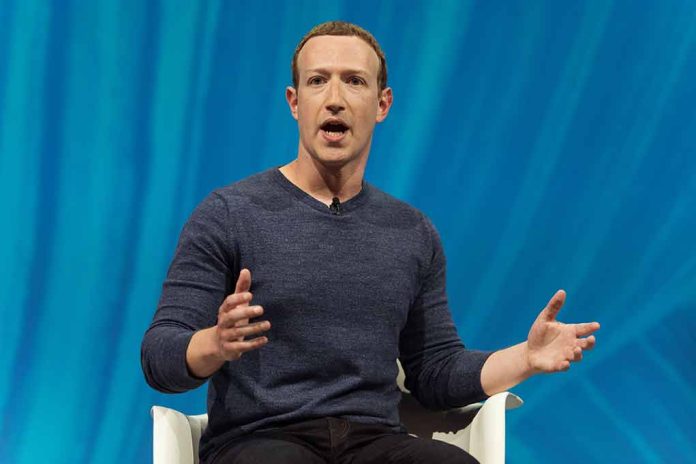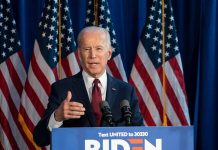
Mark Zuckerberg shocked the nation by admitting that Facebook censored users at the behest of the Biden-Harris administration.
At a Glance
- Meta CEO Mark Zuckerberg admitted that Facebook was pressured by the Biden-Harris administration to censor Pandemic content.
- Zuckerberg’s admission was made in a letter to House Judiciary Committee Chairman Jim Jordan.
- Meta provided thousands of documents and employees for interviews in a content moderation investigation.
- In 2021, Biden officials pressured Facebook to censor certain Pandemic content, including humor and satire.
- Zuckerberg regrets not being more outspoken against government pressure.
Explosive Admission from Zuckerberg
Meta CEO Mark Zuckerberg has openly admitted to Congressman Jim Jordan that Facebook received and acted upon requests from the Biden-Harris administration to censor users’ posts about the Pandemic. This stunning revelation was made in a letter to the House Judiciary Committee and has sent shockwaves across the country, raising critical concerns about free speech and government overreach.
Zuckerberg’s letter detailed that senior officials from the Biden administration pressured Facebook for months to suppress certain Pandemic-related posts, even those that were humor and satire. This revelation begs the question: Just how far does the government’s reach extend into our online discourse?
Mark Zuckerberg just admitted three things:
1. Biden-Harris Admin "pressured" Facebook to censor Americans.
2. Facebook censored Americans.
3. Facebook throttled the Hunter Biden laptop story.
Big win for free speech. pic.twitter.com/ALlbZd9l6K
— House Judiciary GOP 🇺🇸🇺🇸🇺🇸 (@JudiciaryGOP) August 26, 2024
Meta’s Compliance Under Scrutiny
Zuckerberg stated that despite the government pressure, the final decision to remove content was Meta’s. He admitted to regretting their compliance and not being more vocal about the pressure exerted by the administration.
Meta has submitted thousands of documents and allowed dozens of employees to be interviewed as part of the House Judiciary Committee’s investigation into the extent of governmental influence.
Meta’s compliance included censoring posts about lockdowns, vaccines, and mask mandates, which were deemed as misinformation. Facebook removed over 20 million pieces of content during this period.
The House Judiciary Republicans hailed Zuckerberg’s letter as a “big win for free speech,” sparking a heated debate over the boundaries of digital expression and tech companies’ ethical responsibilities.
White House Responds to Consequences
The Biden administration defended its actions, claiming they were necessary to protect public health during the pandemic. In contrast, Zuckerberg expressed regret over not defending free speech more vigorously. It’s a bitter pill to swallow—to think freedom of speech is being guided, even pressured, by government executives.
“Ultimately, it was our decision whether or not to take content down, and we own our decisions, including Pandemic-related changes we made to our enforcement in the wake of this pressure,” Zuckerberg wrote. “I believe the government pressure was wrong, and I regret that we were not more outspoken about it.” – Mark Zuckerberg
A Shift in Election Influence
In an attempt to distance Meta from political bias, Zuckerberg confirmed that he would no longer contribute financially to local jurisdictions to support election infrastructure, contrasting with his actions during the 2020 election.
These contributions were heavily criticized and labeled “Zuckerbucks” for allegedly being unfairly distributed. Zuckerberg’s decision is viewed by many Republicans as a critical step toward maintaining election integrity.
A Stained Reputation
Facebook also faced significant backlash for suppressing the Hunter Biden laptop story, a decision Zuckerberg now admits was a mistake. At the time, the FBI had warned Meta about potential Russian disinformation, leading to the temporary demotion of the story. Zuckerberg acknowledges that the demotion was unnecessary and that the policies have since been revised to prevent similar mistakes.
“That fall, when we saw a New York Post story reporting on corruption allegations involving then-Democratic presidential nominee Joe Biden’s family, we sent that story to fact-checkers for review and temporarily demoted it while waiting for a reply. It’s since been made clear that the reporting was not Russian disinformation, and in retrospect, we shouldn’t have demoted the story,” he stated. – Mark Zuckerberg
Zuckerberg’s revelations ignite a critical dialogue about the future of digital platforms and their ethical responsibilities. As we continue to uncover how deeply government influence has seeped into what is supposed to be free and open discourse, we must grapple with ensuring that the First Amendment is respected both online and offline.

















